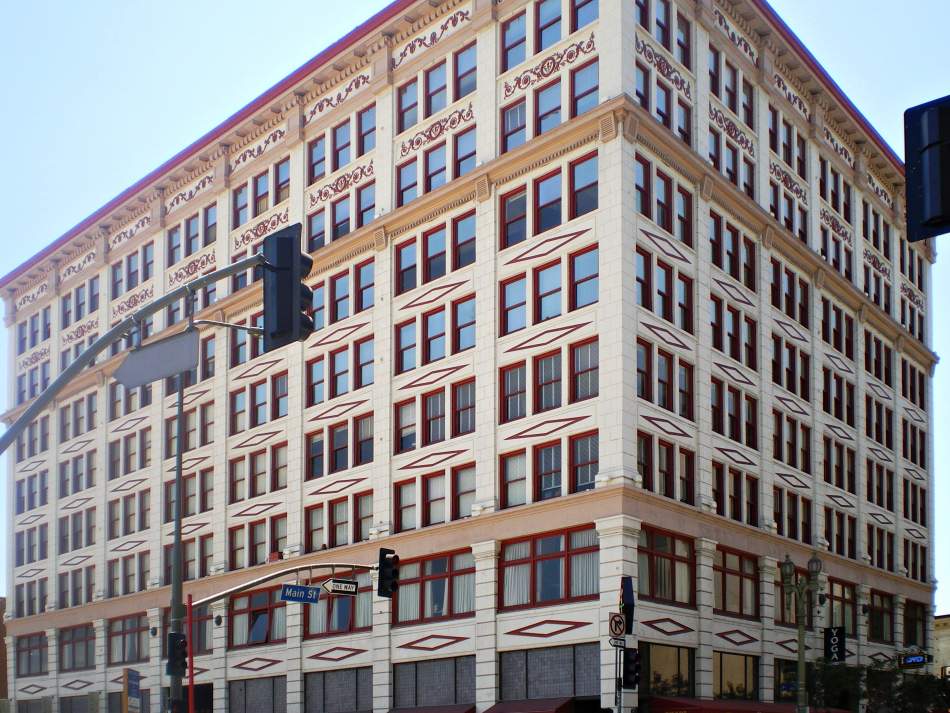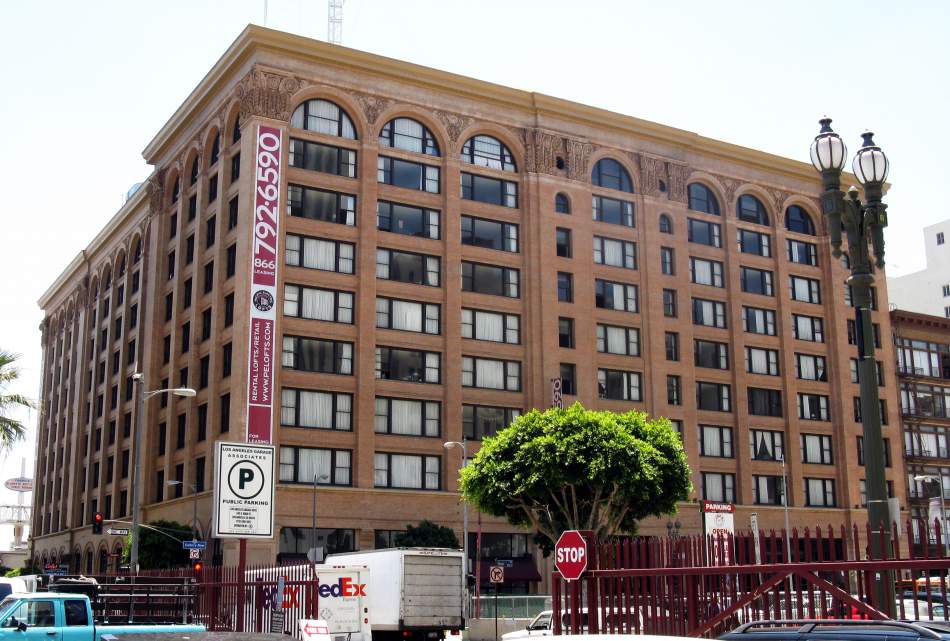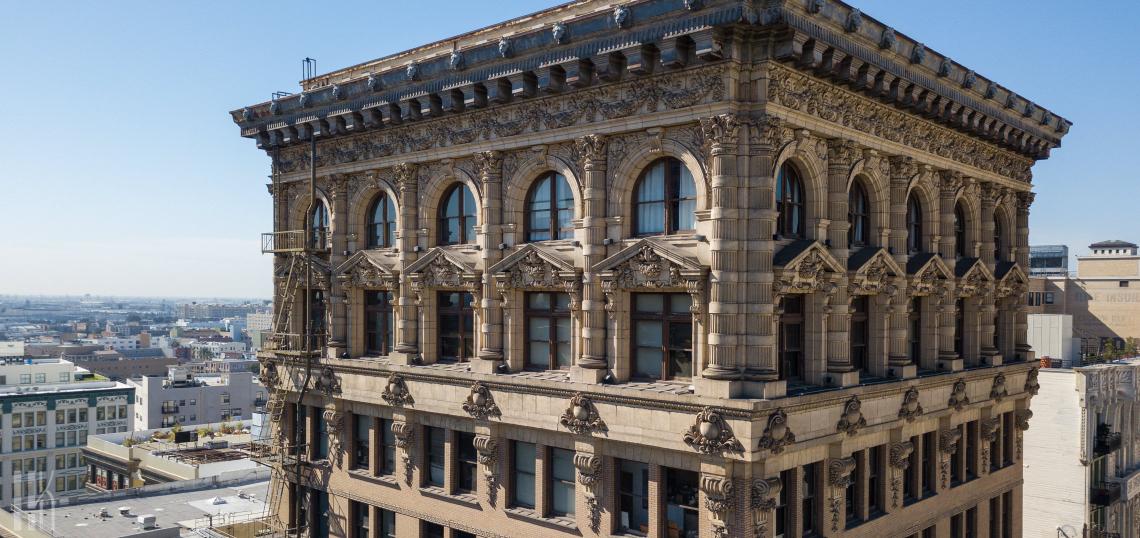Adopted in 1999, the adaptive reuse ordinance is credited with the ushering in the explosive growth of Downtown's residential community by enabling the conversion of vacant office buildings into housing. Now, as the City of Los Angeles faces a state mandate to enact new zoning rules to permit at least 255,000 additional homes, it could be going citywide.
"Los Angeles needs more housing that Angelenos can afford" said Mayor Karen Bass in a news release. "Adaptive reuse development can help bring much needed housing online throughout the City. I look forward to working with the City Planning Commission, City Council and communities across Los Angeles to receive input on this important policy."
 The San Fernando Building in Downtown Los Angeles, which was converted to housing through the adaptive reuse ordinanceWikimedia Commons
The San Fernando Building in Downtown Los Angeles, which was converted to housing through the adaptive reuse ordinanceWikimedia Commons
The expansion of the adaptive reuse ordinance was designated as one of six key strategies in the citywide housing incentive program, which is how L.A. aims to meet its housing element obligations in the coming years. Currently, only buildings completed before July 1, 1974 in a handful of Central Los Angeles neighborhoods are eligible for conversion through the program. The ordinance now under consideration by Planning officials would expand eligibility to include:
- all buildings citywide which are at least 15 years old
- buildings between five and 15 years old with the approval of a conditional use permit by the Zoning Administrator; and
- any parking garage that is at least five years old.
While the adaptive reuse ordinance has enabled the construction of more than 12,000 homes in Downtown, past efforts to expand its reach to other quarters of the city have come with the caveat of only allowing income-restricted housing. However, with the market for offices perhaps forever changed by the pandemic, calls for converting empty buildings into apartments and condominiums have picked up steam in cities across the country.
The proposed regulations for the draft citywide ordinance would retain the provisions of the existing ordinance which offer additional flexibility for the conversion of existing historic structures, including exemptions from parking requirements and limits on residential density.
 The Pacific Electric Building in Downtown Los Angeles, which was converted to housing through the adaptive reuse ordinanceWikimedia Commons
The Pacific Electric Building in Downtown Los Angeles, which was converted to housing through the adaptive reuse ordinanceWikimedia Commons
Conversion projects would remain subject to the city's linkage fee ordinance, which charges developers to generate funds for new affordable housing developments. The Planning Department is currently conducting a feasibility study to determine if affordability requirements are economically viable for adaptive reuse projects. Existing regulations allow for developers to pay an in-lieu fee rather than building affordable units on-site.
For more information, Planning staff will host three webinars from June 6 through June 8, offering background information on the draft ordinance and opportunities to provide feedback.
The draft ordinance is available to view here to view, and a fact sheet can be found here. To receive updates, sign up here.
Follow us on social media:
- Adaptive Reuse (Urbanize LA)






